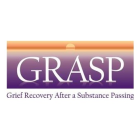All Posts in Category:Grief/Loss
GRASP: Grief Recovery After Substance Passing share
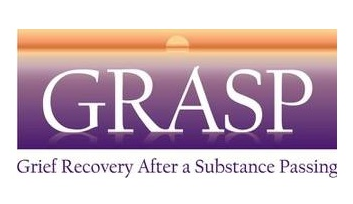 If you are coping with the tragic death of a loved one due to drugs, including alcohol, GRASP can provide much needed understanding and support. In my experience, this kind of loss can be much more complex than the “expected” end-of-life passing of an elder or, even, terminal illness. Strong feelings of anger, guilt, and possibly even relief can be experienced by survivors of an addicted family member or dear friend. GRASP can help you to determine if there is a support group local to your area, provides written information from people who understand what you’re going through, has links to other resources, hosts retreats and conferences, and has a closed group on Facebook where you can seek support from others who have had similar experiences to your own.
If you are coping with the tragic death of a loved one due to drugs, including alcohol, GRASP can provide much needed understanding and support. In my experience, this kind of loss can be much more complex than the “expected” end-of-life passing of an elder or, even, terminal illness. Strong feelings of anger, guilt, and possibly even relief can be experienced by survivors of an addicted family member or dear friend. GRASP can help you to determine if there is a support group local to your area, provides written information from people who understand what you’re going through, has links to other resources, hosts retreats and conferences, and has a closed group on Facebook where you can seek support from others who have had similar experiences to your own.
National Alliance for Grieving Children share
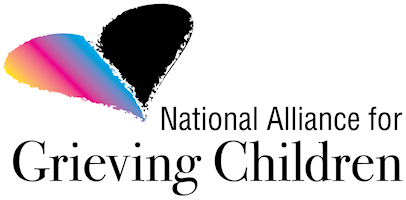 The National Alliance for Grieving Children has information available on their website to help kids to cope with the death of a special person in their life. There are articles, books, and links to finding local support, such as Peter’s Place, as well specialty services such as camps for kids who have lost a parent. Children need someone that they can talk to about death and loss. A lot of times, parents and other close adults can meet these needs. This resource can both support the adults in children’s lives to feel comfortable with having these conversations, or guide you to finding others that can help as well.
The National Alliance for Grieving Children has information available on their website to help kids to cope with the death of a special person in their life. There are articles, books, and links to finding local support, such as Peter’s Place, as well specialty services such as camps for kids who have lost a parent. Children need someone that they can talk to about death and loss. A lot of times, parents and other close adults can meet these needs. This resource can both support the adults in children’s lives to feel comfortable with having these conversations, or guide you to finding others that can help as well.
Compassion & Choices share
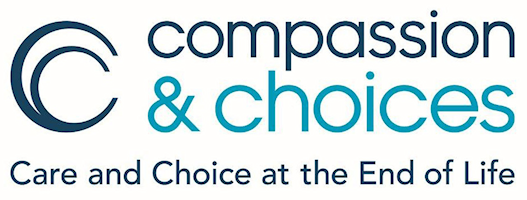 Compassion & Choices is a website where you can find resources to help guide you or a loved one to think through and communicate to others how you would feel the most comfortable and cared for during end of your life. There is no “right way” to approach the final weeks and months at the end of one’s life, which is why it’s so helpful to be able to communicate to your loved ones what choices feel right for you. This can range from how extensive or heroic you want medical intervention to be all the way to whether you are spending your final days in the hospital, a nursing home, or in your own home. Heck, if you are physically to the point that you can’t communicate what you want, do you want the tv on in your room, music played, or just the quite murmur of your loved ones in the room?
Compassion & Choices is a website where you can find resources to help guide you or a loved one to think through and communicate to others how you would feel the most comfortable and cared for during end of your life. There is no “right way” to approach the final weeks and months at the end of one’s life, which is why it’s so helpful to be able to communicate to your loved ones what choices feel right for you. This can range from how extensive or heroic you want medical intervention to be all the way to whether you are spending your final days in the hospital, a nursing home, or in your own home. Heck, if you are physically to the point that you can’t communicate what you want, do you want the tv on in your room, music played, or just the quite murmur of your loved ones in the room?
The guides provided at this site can help you think through and document/communicate what your wishes are. Not only will this make your end of life experience a better one for you, but your loved ones will also feel more confident that they are advocating for what you really want, so there is less anxiety and guessing for them.
Crime Victims’ Center of Chester County share
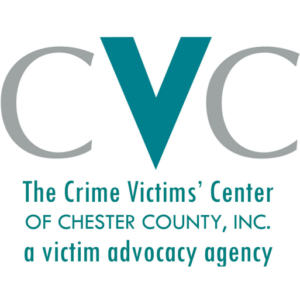 The Crime Victims’ Center of Chester County, Inc. provides free and confidential services to victims and their family members/significant others who reside in or were victimized in Chester County, Pennsylvania. They make the cold and unwelcome world of the court system feel knowable and as effective as possible by practically, and sometimes literally, holding your hand every step of the way. Additionally, free counseling and even money towards expenses that have resulted from being a victim are also available.
The Crime Victims’ Center of Chester County, Inc. provides free and confidential services to victims and their family members/significant others who reside in or were victimized in Chester County, Pennsylvania. They make the cold and unwelcome world of the court system feel knowable and as effective as possible by practically, and sometimes literally, holding your hand every step of the way. Additionally, free counseling and even money towards expenses that have resulted from being a victim are also available.
Since I originally wrote this post, I have now had personal experience with this organization and I can’t say enough good things about them. If you are the victim of a crime, they should be the second place, that you call, after the police/FBI. Even if you are unsure or don’t want to formally report your the crime to the authorities, CVC is there for you, 24-hours/day.
CVC, also known as the Rape Crisis Council of Chester County, Inc., is the designated Sexual Assault Center for Chester County. CVC provides services to victims of all types of crime and violence including, but not limited to: rape, sexual assault, incest, sexual harassment, child abuse, elder abuse, homicide, assault, robbery, identity theft, drunk driving, stalking, and bullying.
Tip: If you don’t live in Chester County, your county will have a crime victims’ center too, but perhaps by a different name. A quick Google search should be able to help you locate the one in your area.
Peter's Place: For Grieving Children & Families share
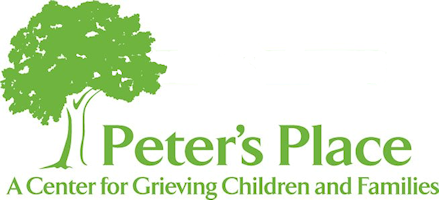
Located in Radnor, PA, Peter’s Place offers free services to the families and loved ones who are grieving the difficult loss that comes from premature death. Support groups facilitated by mental health professionals for children and caregivers and young adults are available. Services are also extended to local schools who have students who have recently experienced a loss. More recently, a new grief group has been added to meet the needs of people who are grappling with loss due to substance abuse. When a loved one dies before old age, the people left behind can feel alone in their grief. Peter’s Place is there to help.
From their website: Peter’s Place was founded in 2001 in memory of Peter Morsbach. After Peter’s sudden death at the age of ten, his family and friends became aware that there were few support options for grieving families, especially for those who could not afford it.
Friends of the Morsbach family created Peter’s Place, the first family grief support agency of its kind to serve our area. Originally designed after a nationally recognized program, Peter’s Place has since combined awareness of local community needs, professional experience, and extensive best practices research to produce a unique grieving center that is not replicated anywhere.
Life Stressors share
 Life stress can test and strain our normal coping skills. Sometimes the stress comes from normal life events like the loss of a parent, getting married, or changing jobs. Other times, the stress can come from the conflict we feel between living our lives by expressing the “true selves” we feel in our hearts and our fears that we will not be accepted by others for who we are. Chronic pain, the shadow of emotional trauma from past abuse, pressures that come from our complicated, modern lives…it all can get to be overwhelming.
Life stress can test and strain our normal coping skills. Sometimes the stress comes from normal life events like the loss of a parent, getting married, or changing jobs. Other times, the stress can come from the conflict we feel between living our lives by expressing the “true selves” we feel in our hearts and our fears that we will not be accepted by others for who we are. Chronic pain, the shadow of emotional trauma from past abuse, pressures that come from our complicated, modern lives…it all can get to be overwhelming.
As this site grows, you will find resources to help you better understand some of the struggles you are going through, to not feel so alone, and ideas for how you can move forward through the more challenging times in your life while reaching out to others, friends, and family (and/or therapist if you need) for support. Be sure to check out the How to Use This Site page to get you familiar with how resources are organized on the site. For those of you who would rather just jump in without an instruction manual, you can either search for key terms or move your mouse over Resource Index by Topic in the top menu bar and jump right in!

